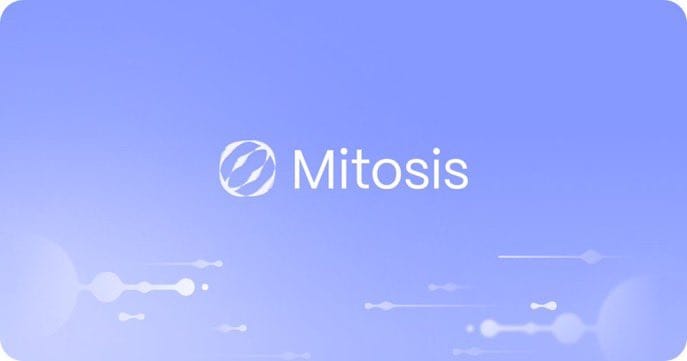Worldcoin's $135M Boost: Bold Expansion Amid Rising Scrutiny

Introduction
Worldcoin has just secured a remarkable $135 million in its latest funding round, marking the largest capital injection for the project to date. This isn't just a win for its founders—it's a bold signal to the tech and crypto industries: investors still believe in the project’s core vision despite swirling controversy. As debates around privacy and biometric data intensify, Worldcoin is doubling down on its mission to build a universal identity and financial network—anchored by iris-scanning Orbs.
In this article, we unpack the significance of this funding, what it enables for Worldcoin’s global ambitions, and the complex challenges it intensifies, from regulatory pressures to ethical concerns.
The Power Play: Funding and Strategic Expansion
$135 Million to Scale Identity Infrastructure
The funding round, reported on May 23, 2025, was led by prominent venture capital firms Andreessen Horowitz (a16z crypto) and Bain Capital Crypto, with participation from Selini Capital, Mirana Ventures, Arctic Digital, and Coinbase Ventures. This brings Worldcoin’s total raised capital to $375 million since 2019. Notably, this latest round involved selling WLD tokens at market prices, expanding their circulating supply.
Worldcoin plans to use this capital to:
- Scale up Orb production and deployment, particularly in the U.S.
- Improve the Orb hardware design and streamline biometric verification.
- Expand the World ID network globally, with a 2025 target of verifying 50 million individuals.
- Strengthen partnerships and improve device manufacturing, including new facilities in Texas.
The U.S. Focus and Orb Mini Rollout
A pivotal piece of Worldcoin’s expansion strategy is its intensified push into the U.S. market. Bolstered by what the company describes as a “more welcoming political climate,” Worldcoin aims to deploy 7,500 Orbs across the U.S. by the end of 2025—a fourfold increase from its global deployment to date.

Central to this rollout is the introduction of the Orb Mini, a compact, smartphone-like device launched in six U.S. cities on May 1, 2025. It’s designed to simplify iris scanning and may soon support a "gig-economy-style" model, allowing verified users to facilitate sign-ups for others, adding flexibility and speed to the onboarding process.
With over 10 million users of the World App and 12.5 million individuals already verified through Orb scans, the goal of reaching 50 million by year’s end reflects the project's aggressive scaling intentions.
Underlying Challenges: Regulation, Consent, and Public Trust

A Tense Regulatory Landscape
Despite the momentum, Worldcoin continues to face serious regulatory hurdles. Global investigations and fines have called out:
- Insufficient mechanisms for obtaining informed, revocable consent.
- Data collection from minors and vulnerable populations.
- Allegedly coercive practices via free WLD token incentives.
While Worldcoin claims to use advanced privacy-preserving technologies like zero-knowledge proofs (ZKPs) and secure multiparty computation (SMPC), regulators argue these do not address real-world concerns about transparency, oversight, and consent integrity.
Ethical Concerns and Public Perception

Beyond the legal scrutiny, Worldcoin struggles with widespread skepticism. The concept of scanning people’s irises to issue a global ID evokes “dystopian” comparisons. These fears are amplified by:
- A lack of clarity around long-term data use and storage.
- Questions about who controls the infrastructure and how it might be repurposed.
- Trust issues with decentralized biometric data collection, especially if the Orb Mini is deployed via third-party “verifiers.”
The expansion plan risks scaling not just the infrastructure—but also the project’s unresolved ethical and reputational issues.
Conclusion
Worldcoin's recent $135 million funding round empowers it to pursue an ambitious global expansion, with a heavy emphasis on the U.S. market and rapid deployment of Orb verification devices. The move aims to shift the project toward a self-sustaining protocol, reducing reliance on venture capital and token giveaways.
However, this growth magnifies unresolved challenges around privacy, consent, and public trust. As Worldcoin seeks to verify millions more users, the stakes are higher than ever—not just technically, but ethically and legally.
Key Takeaways
- Strong investor confidence signals belief in the project’s long-term utility, despite current backlash.
- Expansion through the Orb Mini could democratize onboarding—but introduces new oversight challenges.
- Scaling amplifies risk, especially in jurisdictions with strong privacy laws and regulatory teeth.
Looking Ahead
Can Worldcoin build a trusted global identity network in an era where digital privacy is under siege? Will it adapt its incentive models and consent mechanisms to meet rising expectations—or risk collapse under its own ambition?
These are the questions that will define the next chapter of Worldcoin’s journey.
References
- https://time.com/7288387/sam-altman-orb-tools-for-humanity/
- https://worldcoin.org/blog/world/proof-of-personhood-what-it-is-why-its-needed
- https://www.binance.com/el/square/post/24556358502793
- https://in.investing.com/news/stock-market-news/worldcoin-raises-135m-for-orb-expansion-4845905
- https://cryptoslate.com/worldcoin-app-hits-10-million-users-in-less-than-12-months/
- https://world.org/blog/announcements/tfh-world-app-passes-10-million-users
- https://www.binance.com/en/square/post/23660661486929
- https://www.ccn.com/news/crypto/world-assets-offloads-wld-us-vcs-us-expansion/
- https://autogpt.net/sam-altmans-world-launches-orb-mini-to-verify-youre-human/
- https://mobileidworld.com/worldcoin-launches-orb-mini-biometric-verification-device-in-us-market/
- https://opentools.ai/news/world-unveils-orb-mini-the-future-of-human-verification-is-here
- https://opentools.ai/news/worldcoin-makes-a-giant-leap-into-the-us-7500-orbs-partnerships-galore
- https://cryptobriefing.com/world-id-partnerships-gaming-dating/
- https://cryptoslate.com/worldcoin-launches-us-identity-platform-partners-with-visa-and-tinder-for-digital-id-expansion/
- https://blockworks.co/news/sam-altman-worldcoin-orb-mini-eye-scan
- https://worldcoin.org/privatebydesign-whitepaper
- https://world.org/blog/announcements/tfh-world-app-passes-10-million-users
- https://bravenewcoin.com/insights/worldcoin-expands-in-asia-and-u-s-amid-rising-privacy-and-regulatory-backlash
- https://neuron.expert/news/worldcoin-faces-global-scrutiny-over-privacy-concerns/13237/en/
- https://letslaw.es/en/worldcoin-erase-iris-data/
- https://www.dataguidance.com/news/chile-supreme-court-rules-worldcoin-violated-right
- https://www.theblock.co/post/268446/how-blockchain-can-help-solve-proof-of-personhood
- https://identitymanagementinstitute.org/proof-of-personhood-protocols/
- https://parsers.vc/news/250128-the-battle-for-digital-identity--humanity/
- https://crypto.news/crypto-vc-funding-world-135m-raise-slash-scores-41m/
- https://www.binance.com/en/square/post/19816137930705
- https://docs.rarimo.com/
- https://www.binance.com/en/square/post/24319244480625
- https://www.binance.com/en/square/post/23706869732977


Comments ()